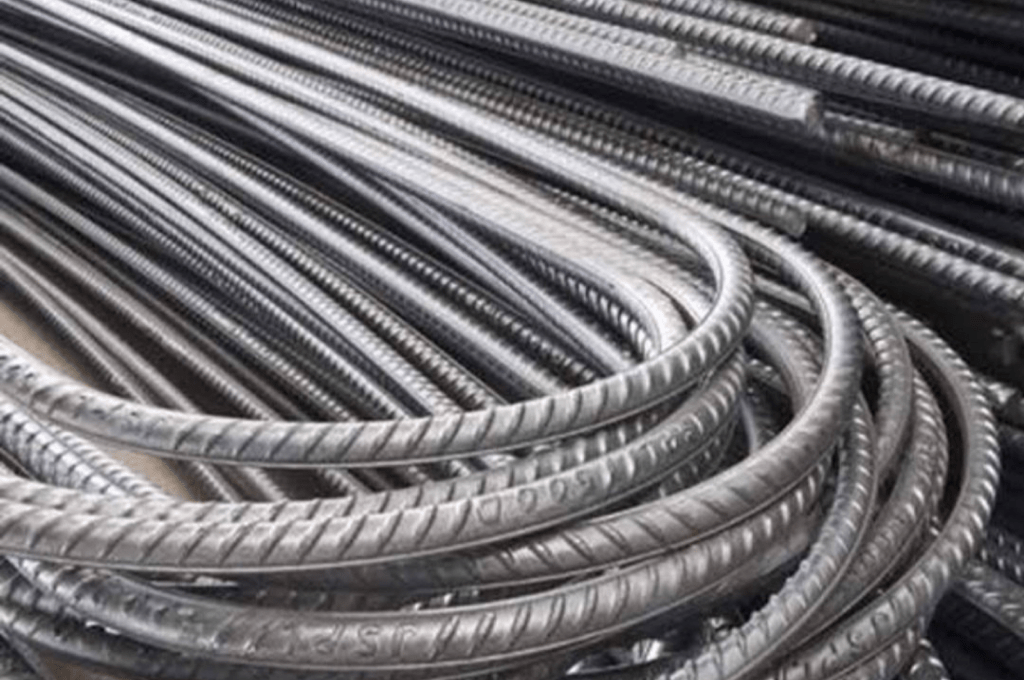
ROUND BARS
Brands
- JSW
- TATA
- JINDAL
- ISI
- SAIL - STEEL AUTHORITY OF INDIA
- APOLLO
- & Many More
Round bars are fundamental components in various construction projects. These cylindrical metal rods are essential in construction material procurement due to their strength, durability, and versatility. But why are they so important, and what should you know about them?
Types of Round Bars
Stainless Steel
Stainless steel round bars are prized for their corrosion resistance and strength. They’re perfect for environments exposed to moisture and chemicals, making them ideal for both industrial and residential applications.
Carbon Steel
Carbon steel round bars offer high tensile strength and toughness. They are widely used in construction, automotive, and heavy machinery industries due to their ability to withstand significant stress and strain.
Alloy Steel
Alloy steel round bars are made by combining steel with other elements like chromium, nickel, and vanadium to enhance their properties. These bars provide superior strength and resistance to wear and tear, making them suitable for high-stress applications.
Aluminum
Aluminum round bars are known for their lightweight and corrosion-resistant properties. They are extensively used in the aerospace and automotive industries, where weight reduction is crucial without compromising strength.
Brass
Brass round bars offer excellent machinability and corrosion resistance. They are commonly used in plumbing, electrical applications, and for decorative purposes due to their attractive finish and durability.
Manufacturing Processes
Hot Rolled
Hot rolling involves rolling the steel at high temperatures, which makes it easier to shape. This process is cost-effective and produces round bars with a rough surface finish, suitable for applications where precision is not critical.
Cold Rolled
Cold rolling is done at room temperature, resulting in a smoother finish and tighter tolerances. Cold rolled round bars are ideal for applications that require high precision and superior surface quality.
Forged Round Bars
Forging involves shaping the metal using compressive forces, resulting in round bars with excellent strength and toughness. This method is often used for high-stress applications where durability is paramount.
Applications in Construction
Reinforcement Bars
In construction, round bars are commonly used as reinforcement bars (rebars) in concrete structures to enhance tensile strength and durability.
Structural Components
Round bars serve as crucial structural components in frameworks, support beams, and scaffolding due to their load-bearing capabilities.
Decorative Elements
Round bars are also used in decorative elements such as railings, gates, and balustrades, adding both functionality and aesthetic appeal to structures.
Choosing the Right Round Bars
Factors to Consider
When selecting round bars, consider factors such as the material type, diameter, length, and the specific requirements of your project. Each type of round bar has its unique properties suited for different applications.
Common Mistakes to Avoid
Avoid choosing round bars without proper knowledge of their properties and applications. Ensure you select the right type of round bar that meets the demands of your construction project to prevent potential issues down the line.
Benefits of Quality Round Bars
Durability and Strength
Quality round bars offer exceptional strength and durability, ensuring that your structures can withstand significant stress and strain without failing.
Versatility in Use
Their versatility makes them suitable for a wide range of applications, from structural support to decorative elements, providing flexibility in construction designs.
Cost-Effectiveness
Investing in high-quality round bars can be cost-effective in the long run. Their durability reduces the need for frequent replacements and repairs, saving you money over time.
Challenges in Round Bars Procurement
Finding Reliable Suppliers
One of the biggest challenges in round bars procurement is finding reliable suppliers who consistently provide high-quality materials on time.
Quality Control Issues
Ensuring the round bars meet quality standards is crucial. Subpar materials can lead to structural failures and increased costs.
Cost Management
Balancing quality and cost is another challenge. Procuring high-quality round bars at a reasonable price requires careful planning and negotiation.
Tips for Effective Construction Material Procurement
Building Supplier Relationships
Establishing strong relationships with trusted suppliers can ensure a steady supply of quality round bars. Long-term partnerships often lead to better prices and reliable delivery schedules.
Ensuring Quality Standards
Implement strict quality control measures to ensure that the round bars meet the required standards. Regular inspections and tests can help maintain consistency in material quality.
Managing Costs and Budgets
Effective cost management involves negotiating prices, forecasting material needs accurately, and avoiding last-minute purchases which can be more expensive.
Leading Suppliers in the Industry
Several leading suppliers in the industry are known for providing high-quality round bars. Researching and choosing reputable suppliers can significantly impact your project’s success.
What to Look for in a Supplier
Look for suppliers with a track record of reliability, quality assurance certifications, and positive customer reviews. Ensure they offer a wide range of round bars to meet different project requirements.
Maintenance and Care
Regular Inspection
Regularly inspect round bars for signs of wear, corrosion, or damage. Early detection of issues can prevent costly repairs and ensure the longevity of your structures.
Cleaning and Storage
Proper cleaning and storage are essential to maintain the quality of round bars. Keep them in a dry, covered area to prevent rust and corrosion, especially if they are made of materials prone to oxidization.
Future Trends
Innovations in Material Science
Advances in material science are leading to the development with enhanced properties such as higher strength, better corrosion resistance, and lighter weight.
Sustainable and Eco-Friendly Options
The industry is shifting towards sustainable and eco-friendly options, including the use of recycled materials and the development of new alloys that reduce environmental impact.
Round bars are indispensable in the construction industry, offering unmatched strength, versatility, and cost-effectiveness. Whether you need reinforcement for concrete, structural components, or decorative elements, choosing the right round bars and reliable suppliers is crucial for the success of your project


